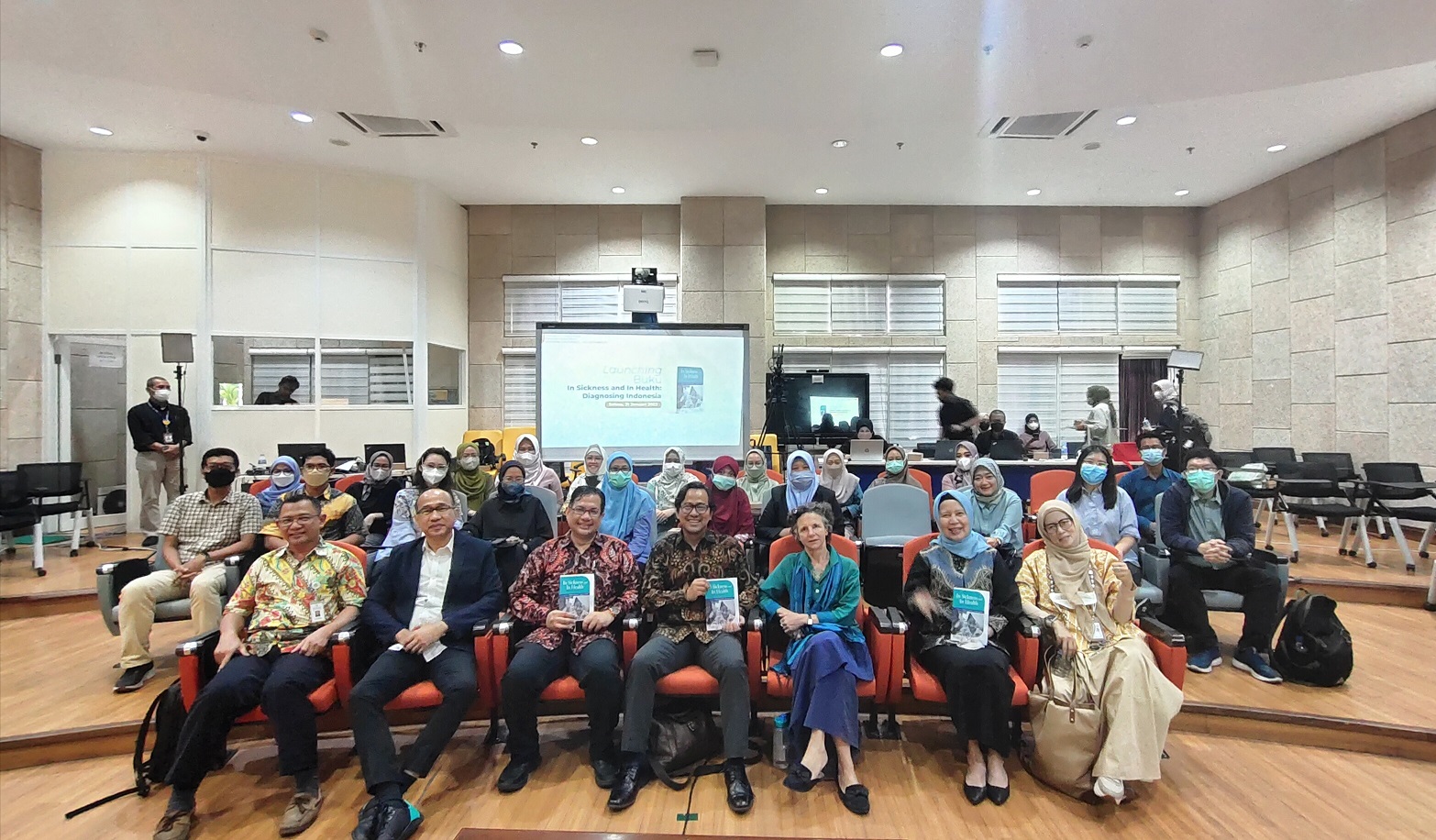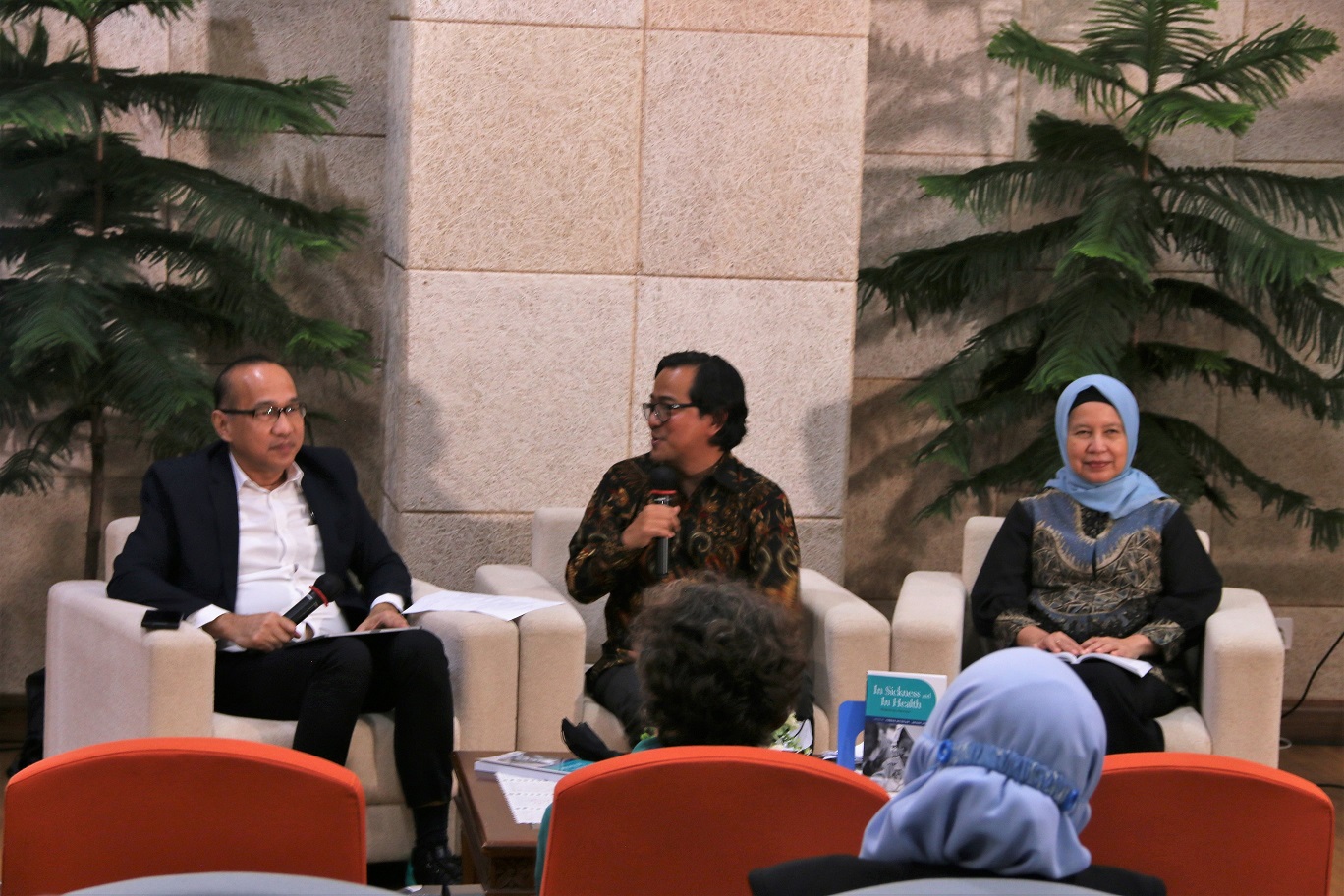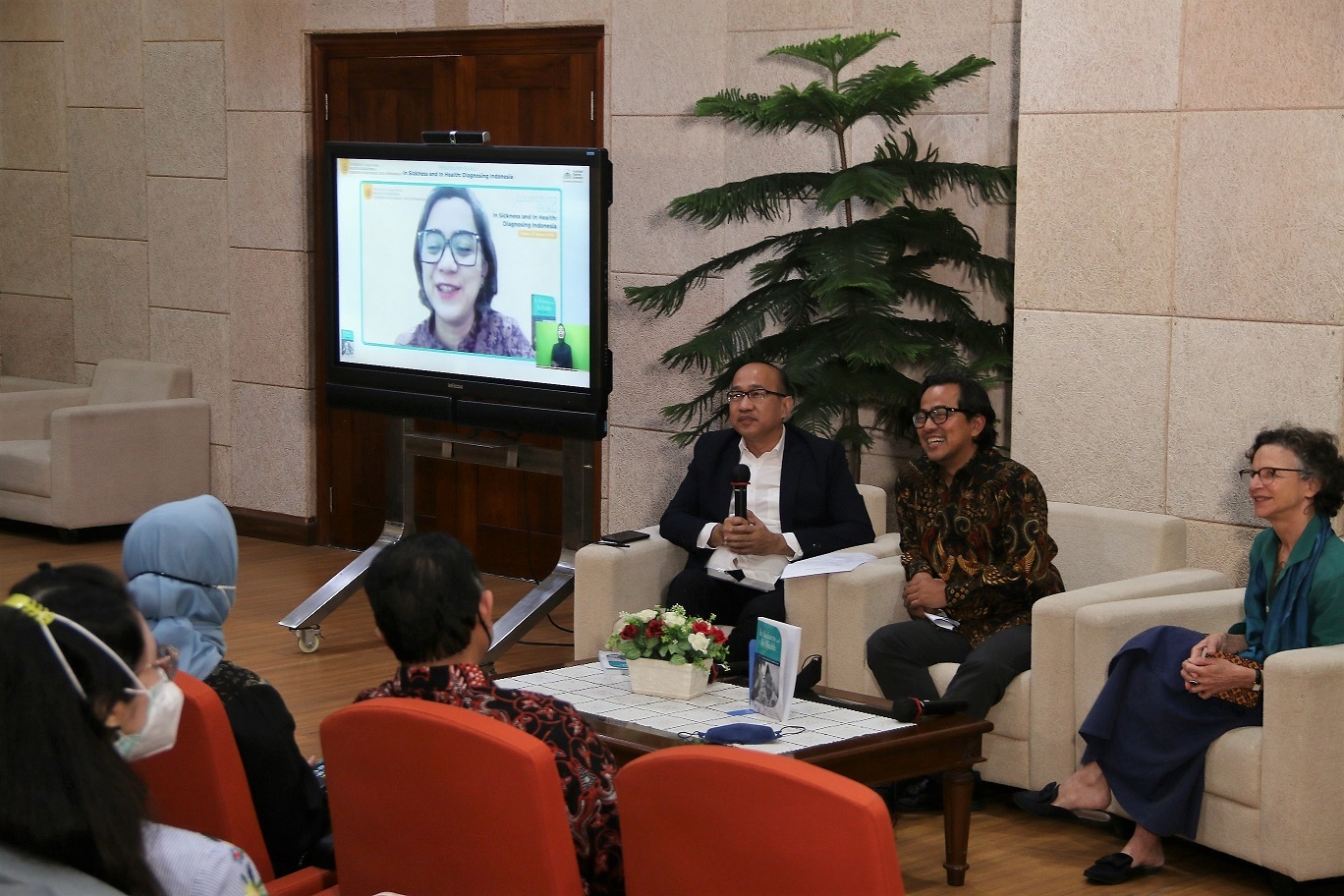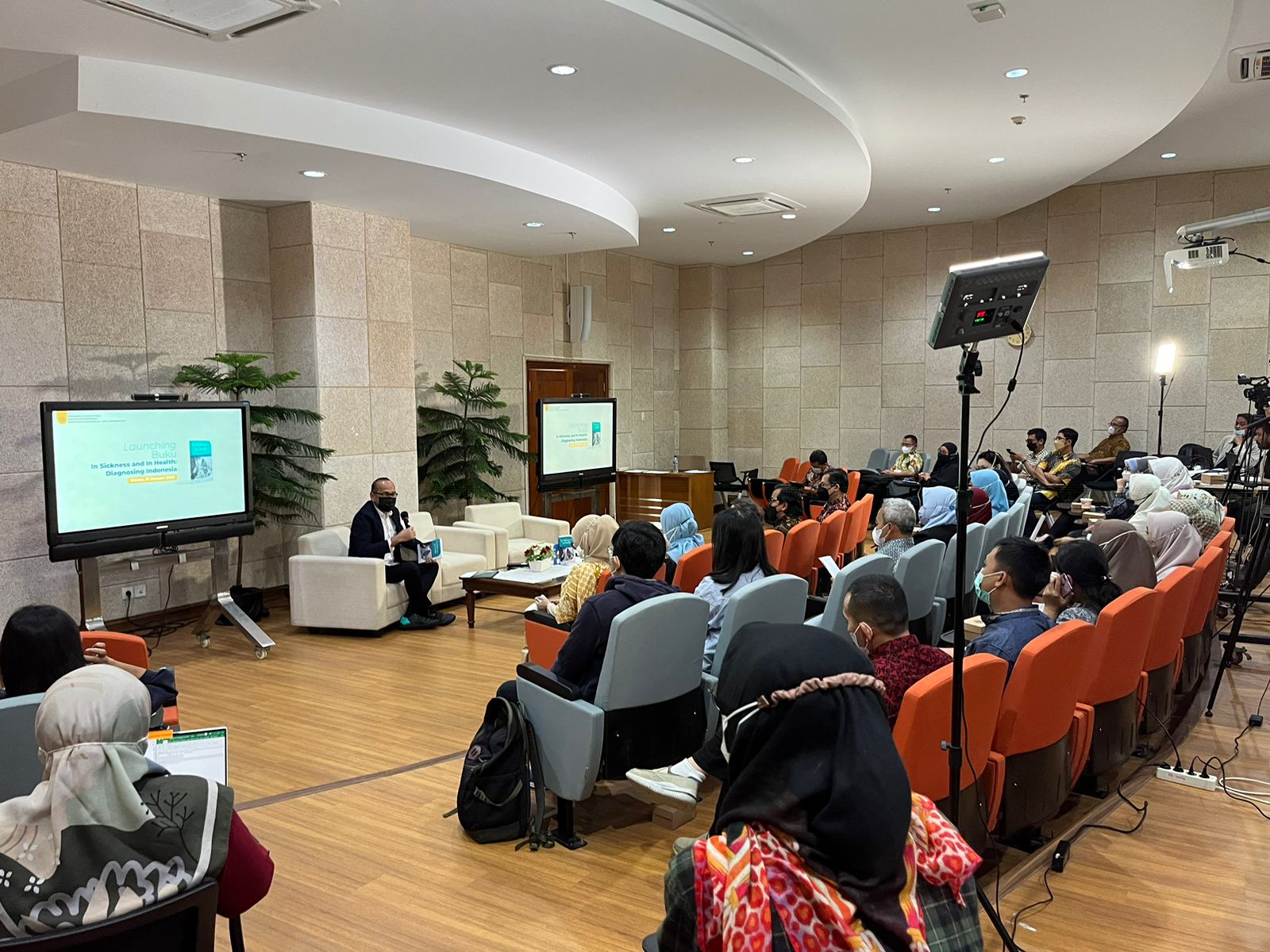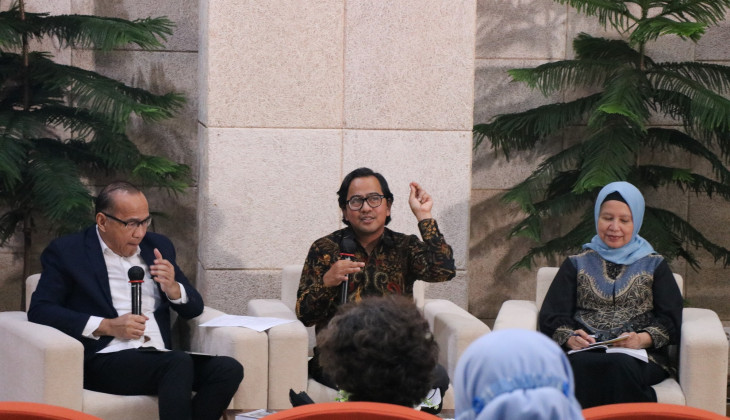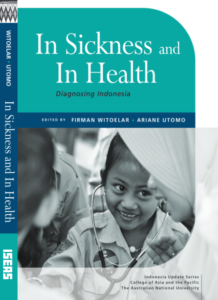“In sickness and in health: diagnosing Indonesia”. Book launch hosted by ANU Indonesia Project and the Faculty of Medicine, Public Health and Nursing Universitas Gadjah Mada. Tuesday, 31 January 2023.
Ringkasan acara dalam Bahasa Indonesia dapat dibaca di Harian Mimbar Umum Online dan blog Universitas Gadjah Mada
Despite significant improvements in many health outcomes over the past 60 years, many chronic problems in Indonesia’s health system including financial sustainability, governance and inequities in accessing health care have long been apparent, even before the COVID-19 pandemic. The epidemiological transition associated with demographic and socioeconomic change in recent decades makes Indonesia one of many countries that still struggle to address the issues of communicable, maternal and nutritional diseases while facing an increasing burden of non-communicable diseases. The 38th Indonesia Update conference was held in September 2021 to discuss these issues.
The papers presented at the conference was recently published as an edited book entitled In sickness and in health: diagnosing Indonesia. Edited by Firman Witoelar (ANU Indonesia Project) and Ariane Utomo (The University of Melbourne), the book comprises 12 chapters by 28 academics in Indonesia and Australia, experts in their field.
On Tuesday, 31 January 2023 the book was launched at the Faculty of Medicine, Public Health and Nursing Universitas Gadjah (FK-KMK UGM) by the Dean of FK-KMK UGM, Yodi Mahendradhata, who is also one of the authors of the book. The book is an important contribution to improving the Indonesian health system, whose weaknesses were laid bare during the pandemic. Dean Mahendradhata also extended his congratulations to editors and authors who completed the book in a relatively short period during a pandemic.
Book editors Firman Witoelar (ANU Indonesia Project) and Ariane Utomo (The University of Melbourne) were present during the launch. Firman provided a brief background to the choice of topic to the 2021 Indonesia Update conference, which is to discuss the state of the Indonesian health system and provide evidence-based policy recommendations for its improvement. Ariane, participating remotely from Melbourne, explained the approach taken in the book which is of health transition which covers not only epidemiological transition (the long term shifts in the mix of diseases due to economics and social change) but also the shift in the organized social response to health conditions. The book represents a collective effort of academics to improving the Indonesian health system so that its residents can live a longer, healthier and happier life.
Book authors Professor Laksono Trisnantoro (FK-KMK UGM), Professor Adi Utarini (FK-KMK UGM),Tiara Marthias (The University of Melbourne) and Elizabeth Pisani (Universitas Pancasila) were panelists in the book discussion that ensued.
Professor Laksono gave a brief overview of health system financing in Indonesia and the need for reform. Professor Adi Utarini described how university partnership with communities helped pilot an innovation in tackling the spread of dengue in Yogyakarta.
Tiara Marthias, who wrote a chapter on maternal and neo-natal health services during the pandemic with Yodi Mahendradhata provided a brief look at how disruptions can have serious and long-term effects. Finally, Elizabeth Pisani gave a vivid account of the convoluted market for drugs in Indonesia.
While not perfect, the Indonesian health system is continuously improving, said Syarifah Liza Munira, Head of the Agency for Health Policy Development of the Indonesian Ministry of Health, who was discussant at the event. The book will be valuable as the government continue to develop policies in, amongst other, preventive measures. The Ministry also has plans to share and make data available to researchers so that there can be more good quality research done, feeding into evidence-based policy.
About 50 people attended the launch in person and almost 200 attendees/views online on Zoom and YouTube. Attendees comprised of academics, government staff and representative of hospitals and health facilities. Four lucky attendees both online and in person received the books free as part of their active participation in the discussion.
